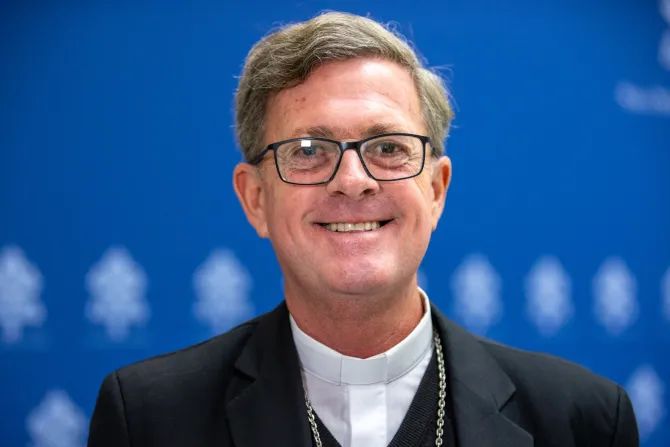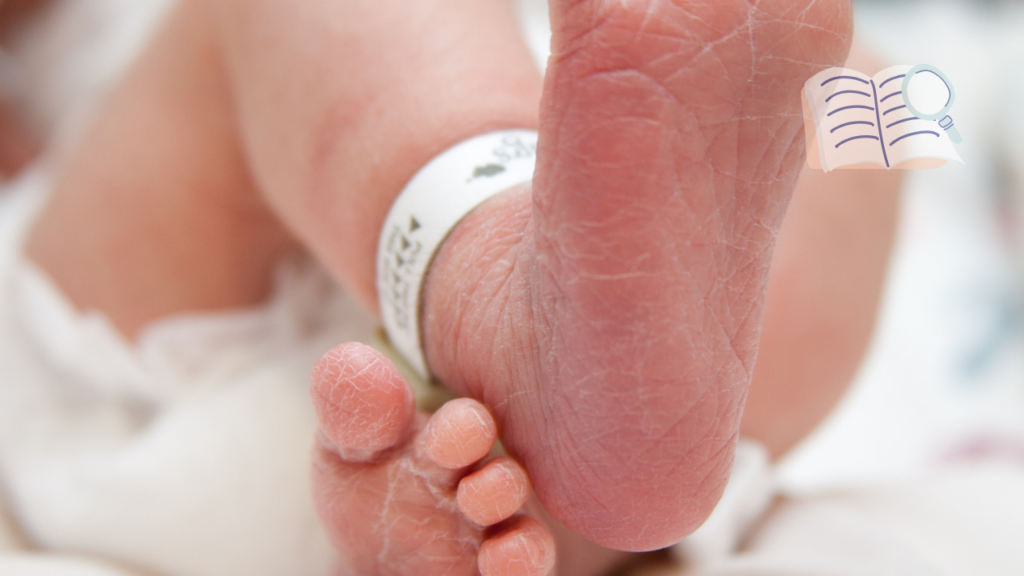ACI Prensa Staff, Feb 8, 2024 / 18:30 pm (CNA).
On Sunday, Feb. 11, Pope Francis will raise to the altars the woman who will become Argentina’s first female saint, Mama Antula — also known as María Antonia of St. Joseph — a consecrated laywoman considered by many as “the mother of the country.”
The ceremony, which will take place in St. Peter’s Basilica, will be attended by representatives of the Catholic Church in Argentina as well as political leaders, including Javier Milei, the president of Argentina.
Argentina is Pope Francis’ native land.
To participate in the long-awaited canonization, Archbishop Jorge Ignacio García Cuerva of Buenos Aires, Auxiliary Bishop Alberto Germán Bochatey of La Plata, and Bishop Vicente Bokalic of Santiago del Estero all traveled to Rome.
The prelates, together with Silvia Correale, postulator of the cause of the future saint, met with journalists Feb. 8 at the Holy See Press Office.
A holy and joyful laywoman
María Antonia de Paz y Figueroa was from the Argentine province of Santiago del Estero, a consecrated laywoman recognized for dedicating her life to the proclamation of the Gospel, especially among the poorest of the people.
She founded the Holy House of Spiritual Exercises in Buenos Aires, and from there she spread Jesuit spirituality, keeping the Ignatian legacy alive.
Speaking in Rome with ACI Prensa, CNA’s Spanish-language news partner, Archbishop García expressed his joy at this “very important event, which is having our own female saint,” while highlighting the “challenge” of following her example today.
The archbishop of the Argentine capital also highlighted the “boldness and apostolic creativity” of Mama Antula, who in the 18th century, “when the Jesuits had been expelled from the Viceroyalty of Río de la Plata by the decision of King Carlos III of Spain, had the initiative to take this important experience of the Spiritual Exercises proposed by St. Ignatius and to continue spreading them throughout Argentina.”
“She strove to do more, and that seems to me to be a characteristic of the holiness of today’s world, for us to strive to do more, for us to strive to live the Gospel thoroughly in today’s society,” he noted.
The prelate also pointed out that Mama Antula did not make distinctions and included people from all social classes.
Sister María Antonia de Paz y Figueroa, whose religious name was María Antonia of St. Joseph. Credit: Public domain
“In the Spiritual Exercises, relatives of the viceroy, members of the Buenos Aires aristocracy, simple families, and slaves participated,” he said, noting that they all “remained together for 10 days.”
Taking this attitude as an example, the prelate called for “living fraternity and concretizing the magisterium of Pope Francis,” especially in a world “where we only look for that which divides us.”
García also highlighted “the joy and good humor” of Mama Antula, who had a great devotion to St. Philip Neri, known as “the saint of joy.”
Finally, he clarified that although in many of the images she is represented with a habit that may seem like that of a nun, “she was a laywoman.”
The prelate pointed out that “we are all the Church, fundamentally the laity, who have to have a greater role and be listened to more.”
Regarding a possible visit by Pope Francis to Argentina, the archbishop of Buenos Aires said that “there is an enormous desire for the pope to meet his people. We await him with open hearts and arms.”
‘An active and merciful faith’
Silvia Correale, postulator of the cause of Mama Antula, called the soon-to-be-canonized saint “the mother of the country” and stressed that to this day, she continues to be “a very important model for living.”
Speaking with ACI Prensa, Correale described her position as postulator as “a service to evangelization” and remarked that “the saints are like the Gospel incarnated in each given historical moment, since God works and manifests himself through them.”
She highlighted that “the Lord manifested himself through a woman,” a consecrated laywoman who “had impressive faith and totally trusted in providence. She was a person who very much trusted in the action of God, very humble, austere, and prayerful.”
“Almost all of what she did was done from nothing, with total austerity. She had an impressive, very strong faith and great charity; she was a person who carried out many works of mercy,” the postulator noted.
Correale also described the soon-to-be first Argentine female saint as “a woman on the move, with an active and merciful faith who also exercised the ministry of listening, since she didn’t preach during the [Spiritual] Exercises, but rather the priests did.”
The postulator explained that in the Holy House of Spiritual Exercises “women who were released from prison were accepted to make a spiritual journey and to be able to reintegrate themselves into society. They also worked with the girls, where they taught them catechism, how to embroider, read… she did a great social and educational work.”
The Holy House, Correale highlighted, “was the center of spirituality and moral values of Buenos Aires. Also, when a family had a problem, they went to her — there are very beautiful anecdotes about that.”
Finally, Correale said that with this canonization Pope Francis demonstrates that “the presence of a woman in a society and in the Church can leave its mark for many generations and can do a lot of good, responding generously to the call of the Lord.”
“We all have a mission in life, our personal charism,” he said. “God calls us into life for a mission, we have to discover it and have the courage to follow him and leave a mark, like Mama Antula did.”
Canonization ‘is a gift from God’
Bishop Vicente Bokalic of Santiago del Estero, the city where Mama Antula was born, told ACI Prensa that the upcoming canonization “is a present and gift from God, who found in this woman the collaboration to do a monumental work.”
“It is also an incentive and a challenge to take up again what she did,” he continued. “She traveled like a pilgrim throughout the country, barefoot, walking from town to town, inviting people from all social classes to the Spiritual Exercises that nearly 80,000 people went through.”
The bishop also pointed out that Mama Antula’s life “is a gift of God’s love capable of transforming societies” and noted that “she spent 22 years accompanying the Jesuit fathers” in their work.
This story was first published by ACI Prensa, CNA’s Spanish-language news partner. It has been translated and adapted by CNA.




